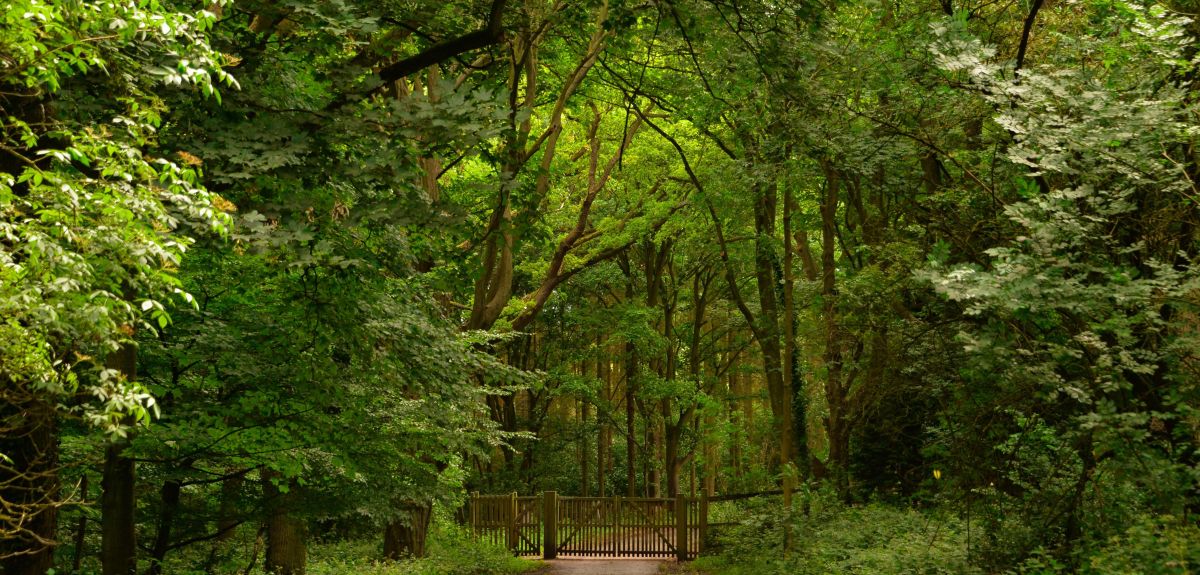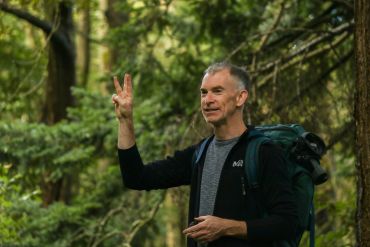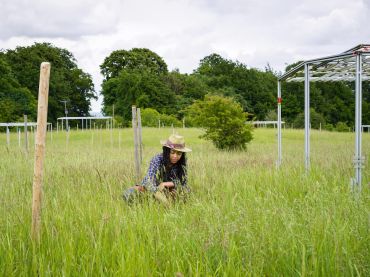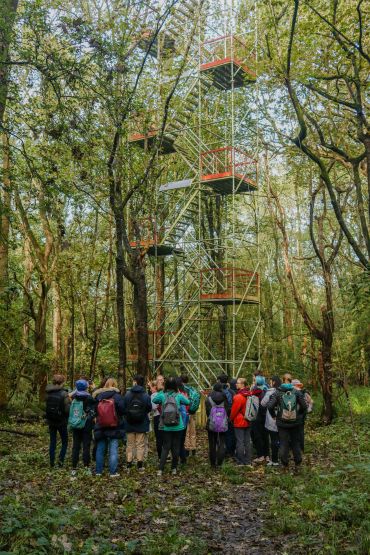
The outdoor lab on the doorstep of Oxford’s students
Professor Andy Hector describes a unique living resource, Wytham Woods, and how this contributes to the distinctive and immersive learning experience for students at Oxford.
Four miles northwest of Oxford’s city centre lies 1000 acres of woodland and grassland – an outdoor living lab for Oxford’s students and academics. Owned and maintained by the University since 1942, Wytham Woods is home to over 500 species of plants, a wealth of woodland habitats, and 800 species of butterflies and moths.
 Professor Andy Hector at Wytham Woods (c) Monica Gujral
Professor Andy Hector at Wytham Woods (c) Monica GujralNow entering its eight year of data collection, the project, he says, relies heavily on Oxford’s students: “The Masters and the PhD students in particular, are really key to keeping the research going. Of course, it does mean projects need to be fairly unique. We can't just keep repeating the same things over and over, so it does pose the challenge of coming up with new ideas, and they have to be ones that the students are also interested in.”
 PhD student Sara Middleton at the field site (c) Steven Pocock/Wellcome Collection
PhD student Sara Middleton at the field site (c) Steven Pocock/Wellcome CollectionEqually, Professor Hector says, Wytham is important for PhD students who in general have relatively limited time and resources: “If you’re at a university that’s lucky enough to have an outdoor laboratory, which is what Wytham is to us, then we can have these long-running studies. The students can come in and hit the ground running and take advantage of all the past investment and long-running studies undertaken there.”
One of those students is Sara Middleton, a doctoral researcher in plant ecology and drought, who has been focusing her research on one specific species of grass within the ecosystem and is currently writing up her PhD thesis.
 Undergraduate biology students on their orientation day (c) Monica Gujral
Undergraduate biology students on their orientation day (c) Monica GujralFrom 2020, the Department of Biology has offered an optional research-focused fourth year as part of an integrated masters and many choose to complete their field-based work at Wytham Woods.
So, what do students think when they visit Wytham? “Students react in different ways to Wytham”, says Professor Hector. “The undergraduate biology degree at Oxford is incredibly broad so you will have students with an interest in genes and cells to those who are more interested in organisms, whole ecosystems and conservation. Some people haven’t spent a lot of time outdoors, which can be challenging if the weather is not good. For others you can tell that they are delighted they can take advantage of this outdoor lab right on our doorstep, and interestingly by having a go some people might reconsider what appeals to them.”
What’s the best time of year there? “So as an outdoorsy person, I actually like Wytham at all times of the year! Even in February, with the leaves off the trees you can really see further through the vegetation. If I had to pick - June or July - before the hay is cut and it’s really looking at its best with most of the flowers in bloom”.
Find out more about Wytham Woods here.
 What Louise Thompson’s campaign tells us about the national maternity crisis
What Louise Thompson’s campaign tells us about the national maternity crisis Celebrating 25 Years of Clarendon
Celebrating 25 Years of Clarendon  Learning for peace: global governance education at Oxford
Learning for peace: global governance education at Oxford  What US intervention could mean for displaced Venezuelans
What US intervention could mean for displaced Venezuelans  10 years on: The Oxford learning centre making an impact
10 years on: The Oxford learning centre making an impact Oxford and The Brilliant Club: inspiring the next generation of scholars
Oxford and The Brilliant Club: inspiring the next generation of scholars New course launched for the next generation of creative translators
New course launched for the next generation of creative translators The art of translation – raising the profile of languages in schools
The art of translation – raising the profile of languages in schools